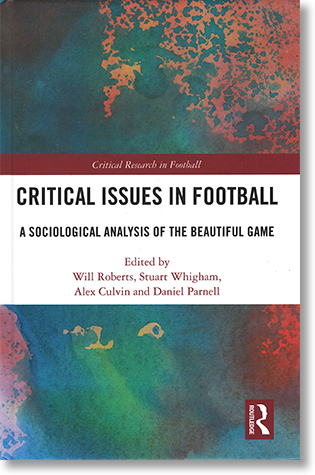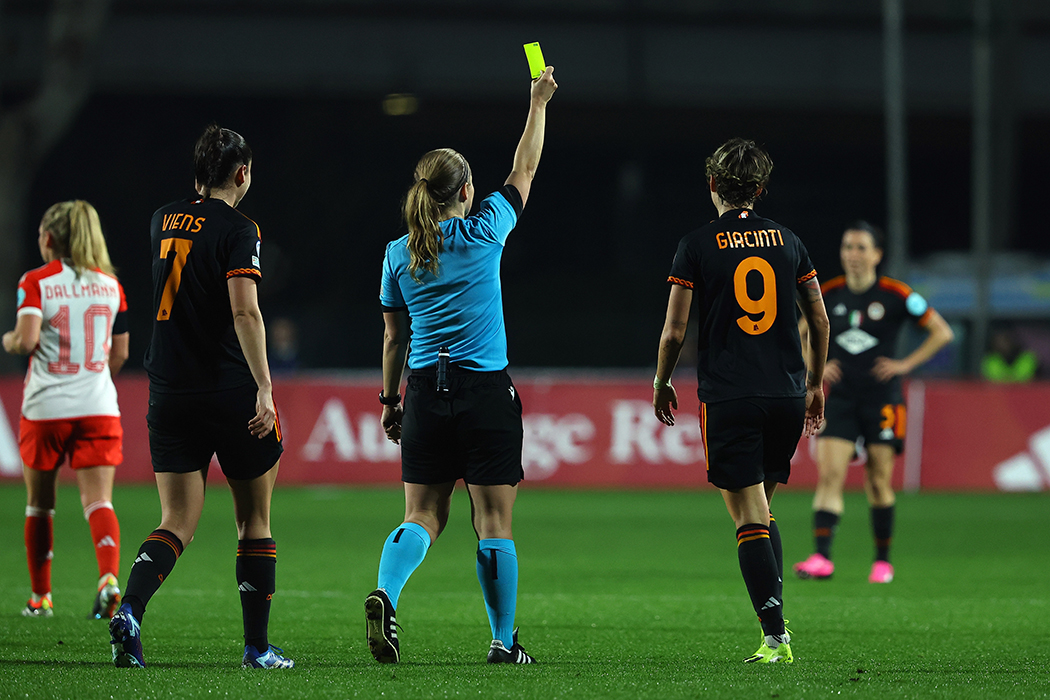Arve Hjelseth
Norwegian University of Science and Technology

Critical Issues in Football: A Sociological Analysis of the Beautiful Game
218 pages, hardcover
Abingdon, Oxon: Routledge 2023 (Critical Research in Football)
ISBN 978-1-03-218309-1
The introduction to this volume is entitled Examining Critical Issues in Football Through Sociological Theory. In other words, it is about football, but it is also about sociological theory. Football has for long been subject to a wide range of sociologically founded perspectives, because it is well suited to such analyses. In terms of playing as well as spectating, football represents an important cultural practice in most regions of the world. Furthermore, football has been subject to fundamental changes during its existence. In England, it started out as a pastime for the upper classes, but it soon became professionalized, and was for many decades a core cultural praxis among the working classes. The last 30-40 years have seen football entering the post-industrial era. It is an integral part of current capitalism, it is integrated with science when it comes to coaching and development of skills and tactics, and football is an important source of identity and group solidarity among fans.
This volume consists of papers which make use of a wide range of sociological theories, with the aim to analyze an equally wide range of issues related to football. In terms of topics, the 14 papers (exclusive of the introduction) ranges from fan identities in Tottenham Hotspur to the child poverty campaign initiated by Marcus Rashford, and from the potential de-humanizing aspects of football academies to female football pundits in the media. Key concepts in discussing these issues are (quoting the introduction) ‘issues of identity, power, inequality, contestation and controversy within the global game’.
Hence, most – though not all – chapters make use of some sort of critical theory. The aim of critical theory is to dig beneath the surface of social relations and social institutions, to reveal what is hidden and therefore goes unnoticed. Sport for all is an explicit aim in most societies, but in fact the opportunity to take part is to at least some degree dependent on gender, social class, sexual identity or ethnicity.
Many, especially those working within the broad field of inequality, power and social exclusion and inclusion in sport, will benefit from several of these studies, both substantially and theoretically.
The book is divided into four sections comprising of three or four papers each. The first part; “Established Social Theories and Football”, deals with Elias and figurational sociology, Foucault, and Ritzer’s McDonaldisation thesis, respectively. As we see, these are sociological theories that are more or less well-established as sociological lenses to study sport and football. A key theorist – also to critical sociology – like Bourdieu is discussed in a few of the papers, but he does not play any important role in this volume. Thus, it is not a comprehensive book covering all core theoretical approaches to football.
The second part is entitled “Emerging Social Theories and Football”, and offers approaches to football based on – perhaps somewhat surprisingly – Slavoj Zizek, Jacques Lacan and Ivan Illich, among others. These chapters certainly offer several interesting insights, but whether they are ‘emerging’ theories, in the sense that they will be more extensively used in the future, remains to be seen. In one of the chapters, Maffesoli’s theory on neo-tribes serves as the framework. The latter approach is more promising in my opinion, and I have seen it used previously also in research on football supporters.
Parts III and IV more explicitly deal with key issues when it comes to social inclusion and exclusion, discussing issues of gender and sexuality (part III) and ‘race’ and ethnicity (part IV), respectively. Different critical feminist theories and critical race theory are accounted for, and subsequently used to study issues like female football pundits, feminist-informed pedagogical principles in coaching, issues of hegemonic and inclusive masculinity in football, and the racialized construction of black footballers.

There is no room in this review to go into detail about each paper. Furthermore, the different chapters are varied both in terms of theory and research questions, to the extent that one could ask in what sense they deserve to make up a comprehensive volume. At least, one could argue that the subtitle is misleading: It is not ‘a sociological analysis of the beautiful game’; it is certainly many analyses.
This is not, however, necessarily a major problem, as most scholars undoubtedly read singular chapters from anthologies like this. Only the editors and the reviewers try to make sense of it as a comprehensive piece of work. That is also the case here: Many interesting insights are offered if you read the papers as singular contributions. I will briefly give two examples of this, while at the same time stressing that my choice of these two papers does not imply that they are the ones I found most valuable. Rather, they in different ways illustrate the interaction between theoretical developments and changes within football, which is at the core of the book.
In chapter 11, Willson and Magrath takes the improvements regarding attitudes to sexual minorities in football as their point of departure. While football was for long deeply rooted in ‘hegemonic’ masculinity (and for many European countries, one could add white, working-class masculinity), after 2000 the game has gradually become more open to sexual diversity. The authors draw on Eric Anderson’s theory of inclusive masculinity to discuss these changes. While many issues of inclusion are still unresolved, there is no doubt that football culture has become more open to diversity. The chapter is excellent in dealing with the continuous interaction between societal changes and theoretical developments.
In chapter 13, Richardson analyzes Marcus Rashford’s Child poverty campaign through the lenses of the concept of social capital. The chapter starts out with accounts of structural racism in both football and society at large, and then introduces various perspectives on social capital to enlighten our understanding of Rashford’s initiative. Richardson accounts at some length for Bourdieu’s version of social capital, but finds Putnam’s version – where social capital can also serve as a resource for people from low socio-economic backgrounds – more fruitful. Further, Putnam identifies social capital in this sense not only as an individual resource, but as a collective resource as well. It is valuable also to those who do not contribute in ‘producing’ it. A reference to the important work of James Coleman, who was a major inspiration to Putnam, would be well-deserved here. But apart from that, Richardson excellently demonstrates how Putnam’s distinction between bonding and bridging social capital is highly useful in order to analyze the Child poverty campaign.
Several chapters can be read like this. Given the variety of both theoretical approaches and substantial issues discussed, few will find all papers equally interesting. But that is always the case. Many, especially those working within the broad field of inequality, power and social exclusion and inclusion in sport, will benefit from several of these studies, both substantially and theoretically.
Copyright © Arve Hjelseth 2024
Table of ContentIntroduction: Examining Critical Issues in Football Through Sociological Theory PART I Established Social Theories and Football
PART II Emerging Social Theories and Football
PART III Social Theories of Gender and Sexuality in Football
PART IV Social Theories of ‘Race’ and Ethnicity in Football
|







